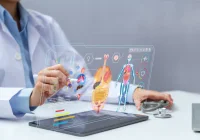Northwell Health, the largest not-for-profit health system in New York State, has reaffirmed its commitment to transformative care by investing €1.2 million ($1.3 million) into employee-led innovations through its 2025 Innovation Challenge. Announced at the organisation’s Big Ideas Showcase, the funding supports three groundbreaking projects aimed at reshaping key areas of healthcare: minimally invasive surgery, paediatric sleep disorder diagnostics and radiology workflows. With a rigorous selection process and a platform that encourages participation from across departments, Northwell Health continues to promote a culture where frontline insights fuel medical advancements and operational excellence.
Enhancing Surgery Through XR and Real-Time Video Support
One of the standout projects is a next-generation surgical support platform developed to enhance minimally invasive procedures. Led by Dr Phillip Connell and supported by biomedical design experts, the solution integrates wireless cameras and extended reality (XR) glasses with standard operating room monitors. It creates a streamlined, portable system capable of delivering high-quality, low-latency video directly to the surgical team’s field of view, enhancing visualisation without the constraints of traditional wired equipment.
This immersive system is designed not only to improve local surgical practices but also to enable remote expert support, which could transform surgical training and access to specialist procedures. By eliminating physical obstructions and allowing real-time AI-supported overlays, the platform can improve both patient safety and surgical precision. Importantly, it also supports collaboration between institutions by making it easier for distant clinicians to assist or observe live operations. This innovation holds promise not only for Northwell hospitals but also for other health systems seeking to extend the reach of minimally invasive surgery to broader patient populations.
Using AI to Tackle Paediatric Sleep Apnoea Gaps
Another winning project addresses the challenge of paediatric obstructive sleep apnoea (OSA), particularly among populations with limited access to sleep diagnostics. Spearheaded by Dr Eric Gantwerker and colleagues at Cohen Children’s Medical Center, the project employs artificial intelligence to analyse sound recordings collected from home devices. The goal is to identify signs of OSA without requiring families to access formal sleep studies, which are often costly, time-consuming and unavailable in some regions.
Must Read: Health Startups Drive Innovation in European Pitch Competition
This AI-driven solution empowers families and clinicians alike by enabling earlier detection of sleep apnoea symptoms. By moving diagnostics into the home, the project aims to bridge a persistent care gap and ensure timely intervention, reducing the risks of untreated sleep apnoea in children, such as learning difficulties, behavioural problems and long-term cardiovascular complications. The technology could eventually support widespread use in primary care, paediatrics and telehealth settings, creating a more inclusive diagnostic pathway for vulnerable children.
Improving Radiology with an Integrated AI Platform
The third project selected for funding proposes a new approach to integrating artificial intelligence into radiological workflows. Led by Dr Matthew Barish, this initiative brings together software engineers, imaging specialists and informatics experts to develop a unified platform that simplifies how radiologists interact with multiple AI tools. Rather than toggling between different systems, radiologists can access insights, compare outputs and give feedback in a single environment, improving the speed and quality of diagnostic decisions.
The platform emphasises collaboration between human expertise and machine learning. By supporting clinician input, it ensures that AI models evolve with clinical reality rather than operating in isolation. In practice, this could mean fewer diagnostic delays, reduced cognitive burden on radiologists and enhanced diagnostic accuracy. The tool also has the potential to identify inconsistencies or gaps in AI performance, making it a valuable asset in the safe deployment of machine learning in clinical care. In an environment increasingly defined by digital transformation, the platform positions Northwell’s radiology services at the forefront of responsible AI integration.
Northwell Health’s Innovation Challenge represents more than a funding opportunity; it is a strategic initiative that harnesses the insights of frontline staff to drive systemic change. By championing projects that blend technological sophistication with practical application, the programme positions Northwell as a leader in collaborative innovation. Each of the funded initiatives—spanning surgical efficiency, paediatric diagnostics and radiology enhancement—reflects the health system’s dedication to addressing real-world challenges with scalable, sustainable solutions. With more investments in its people, Northwell Health reinforces the belief that those closest to the work are best placed to shape the future of healthcare.
Source: Businesswire
Image Credit: iStock










